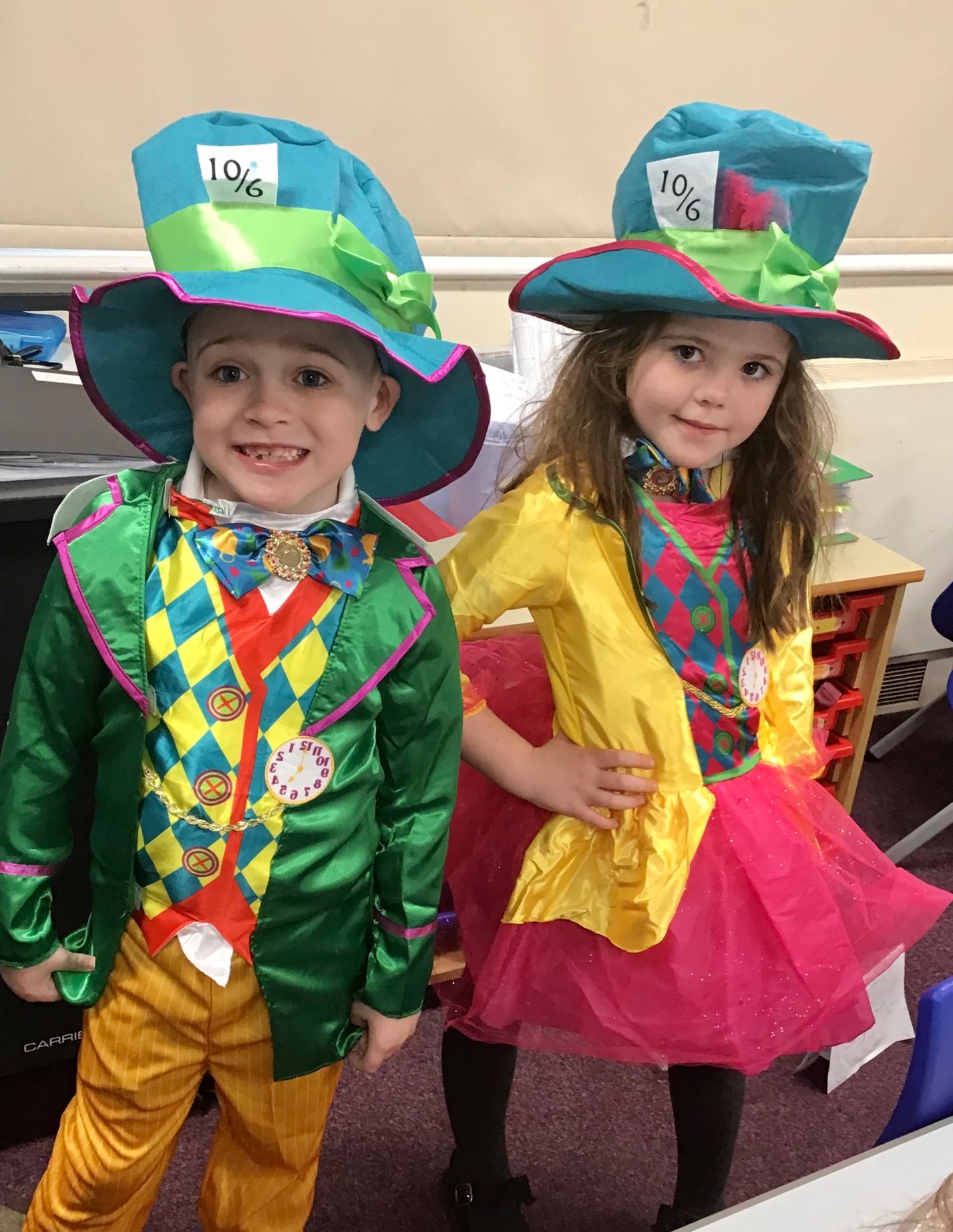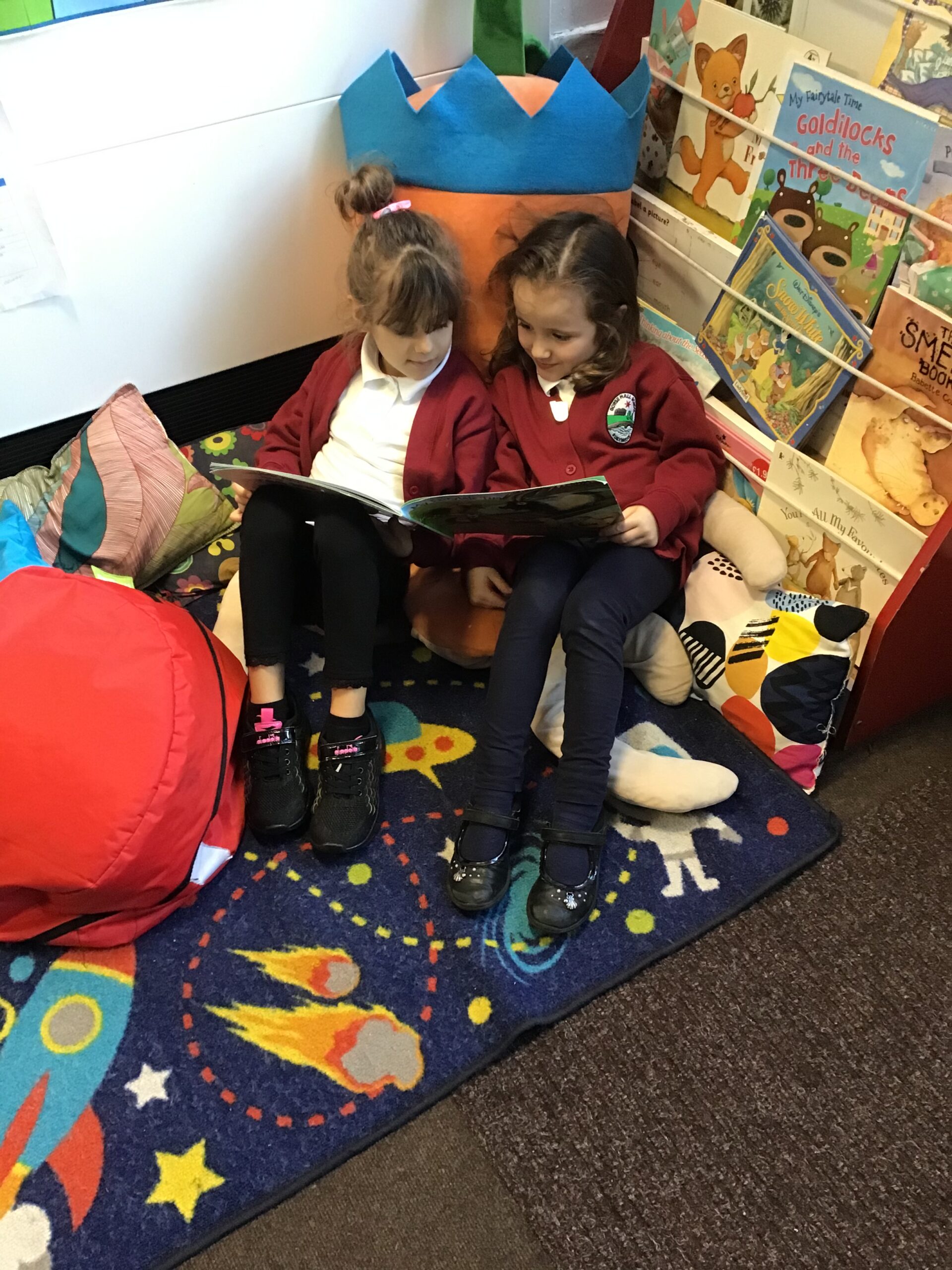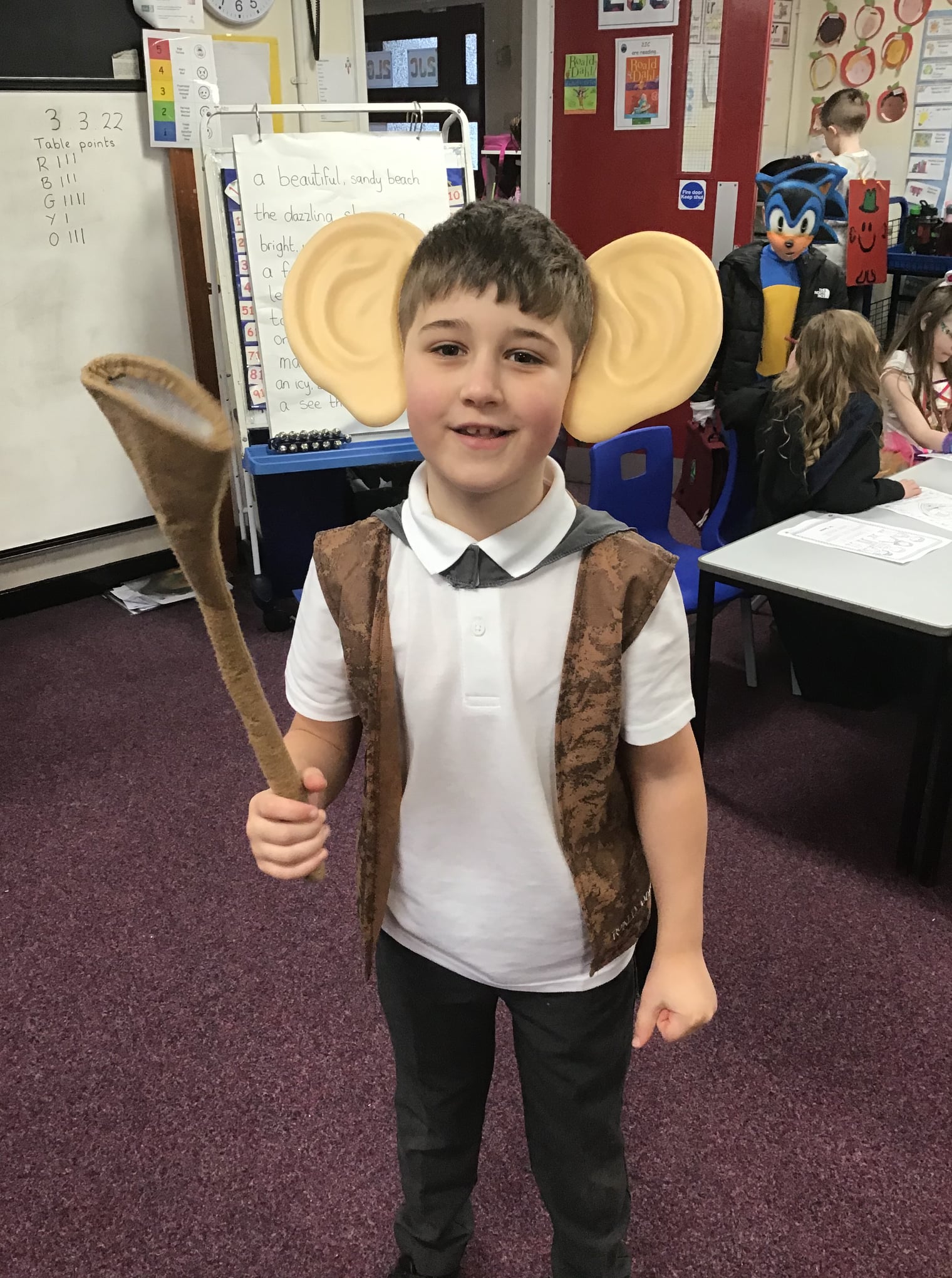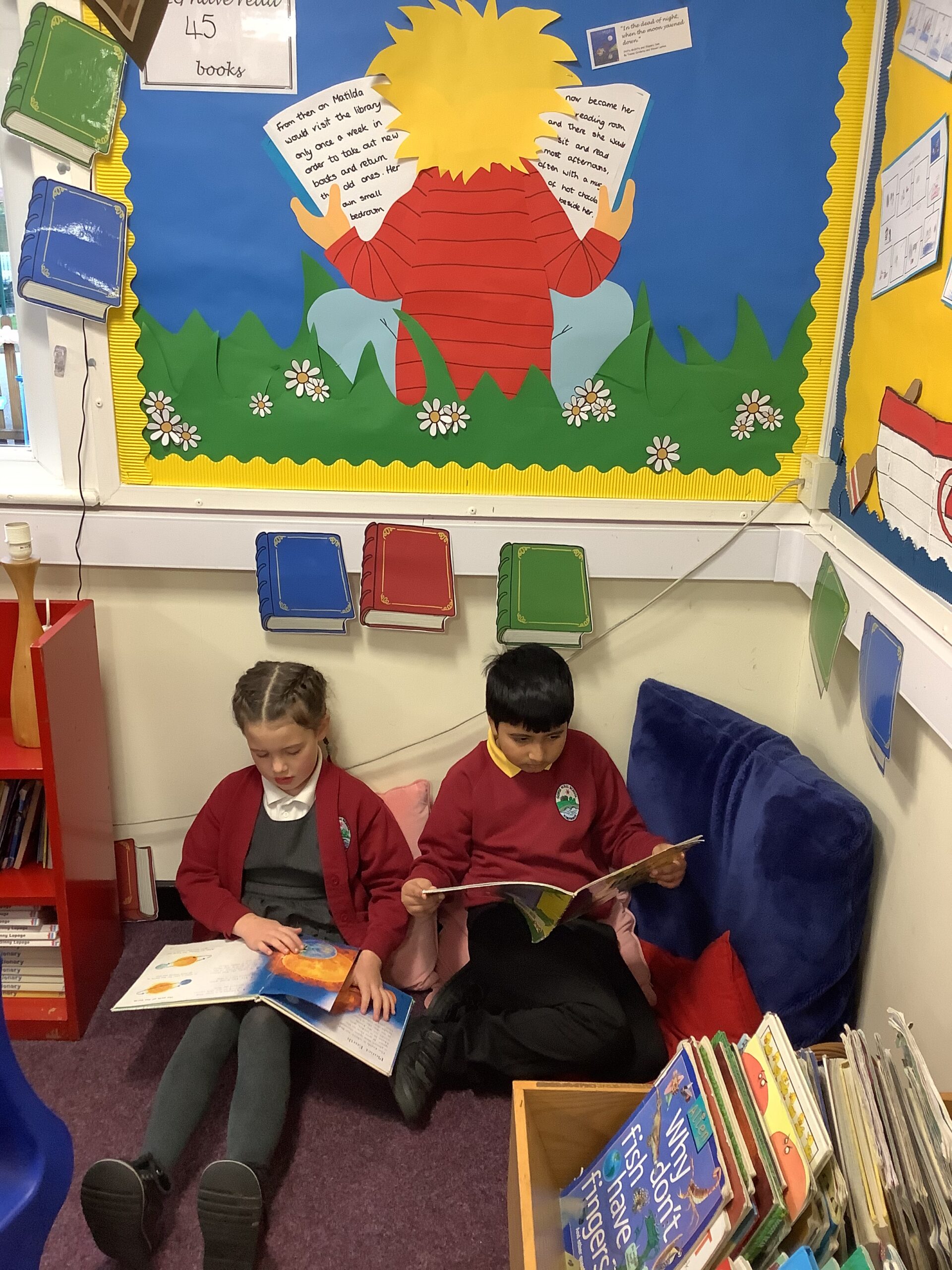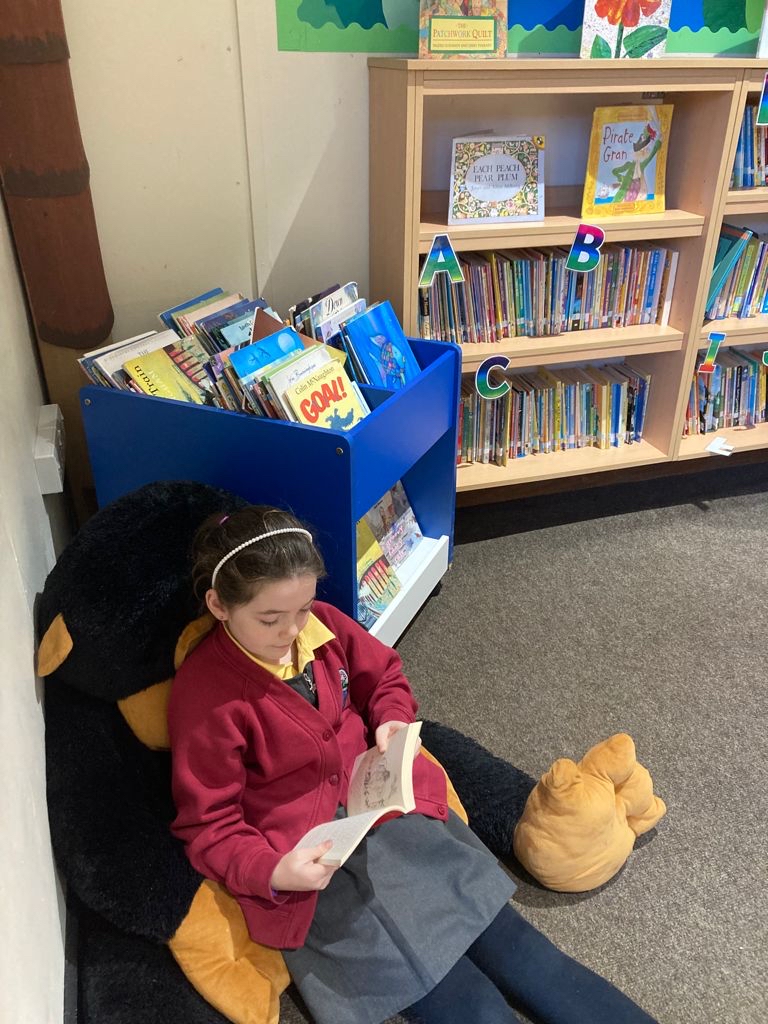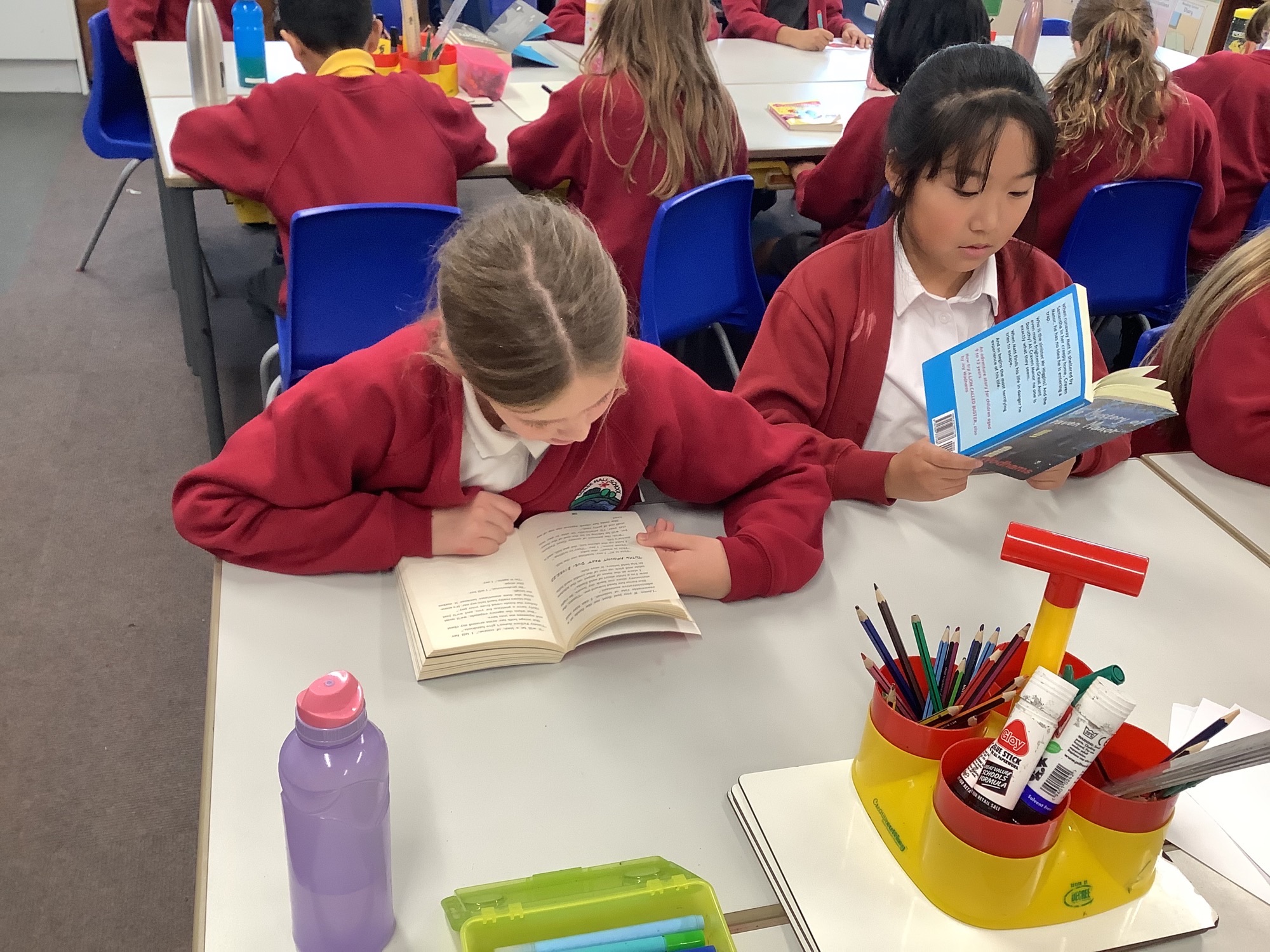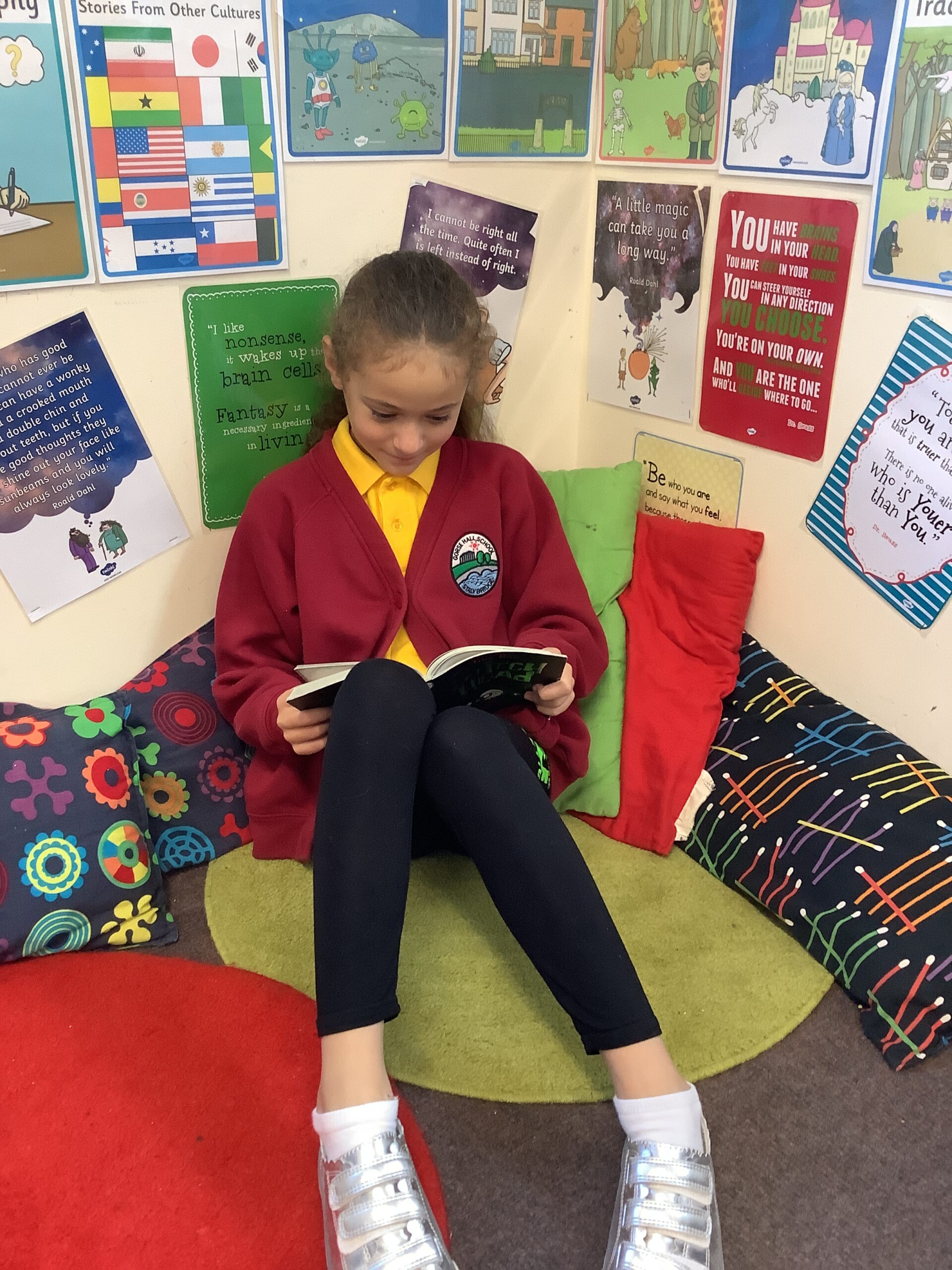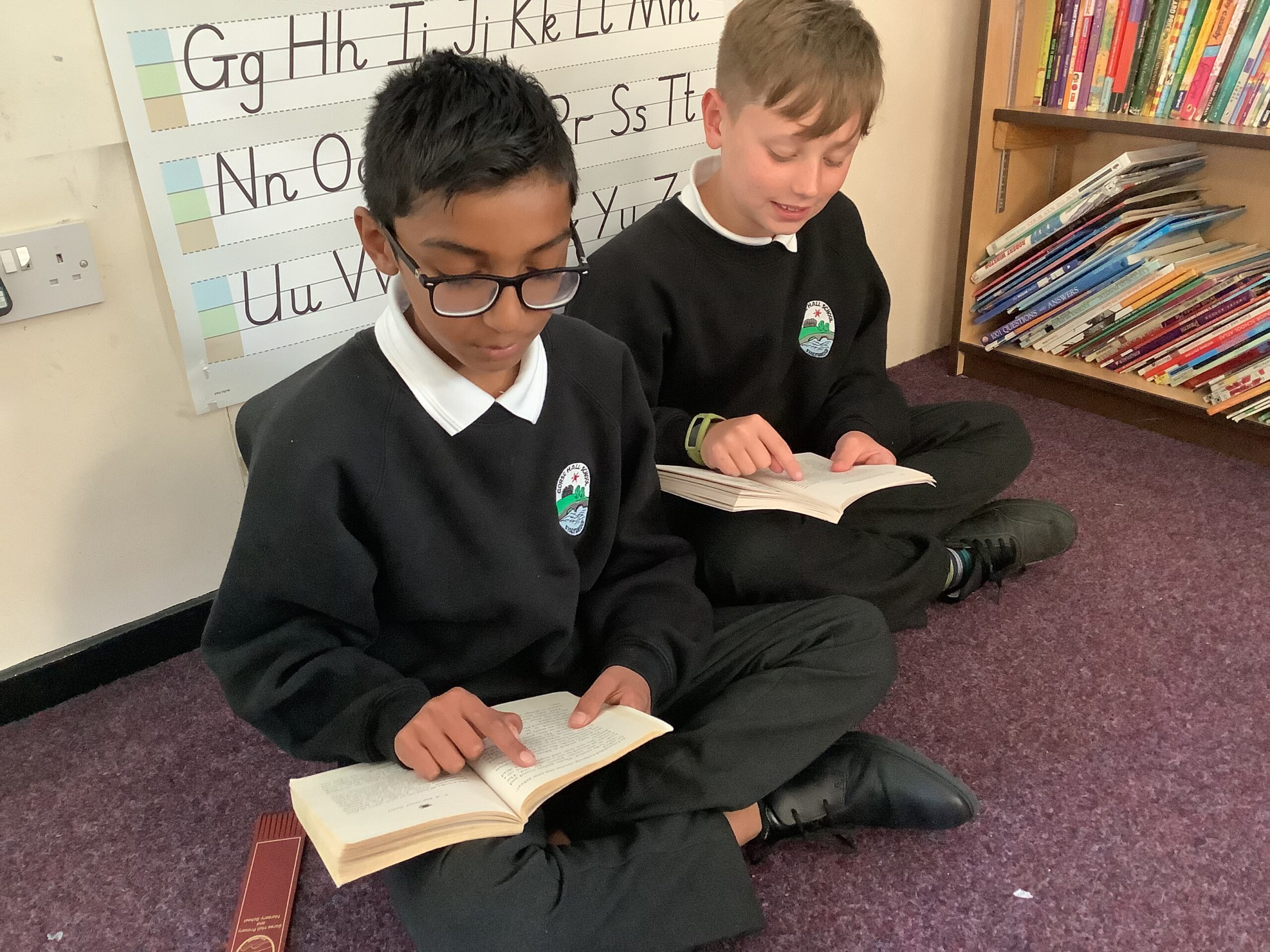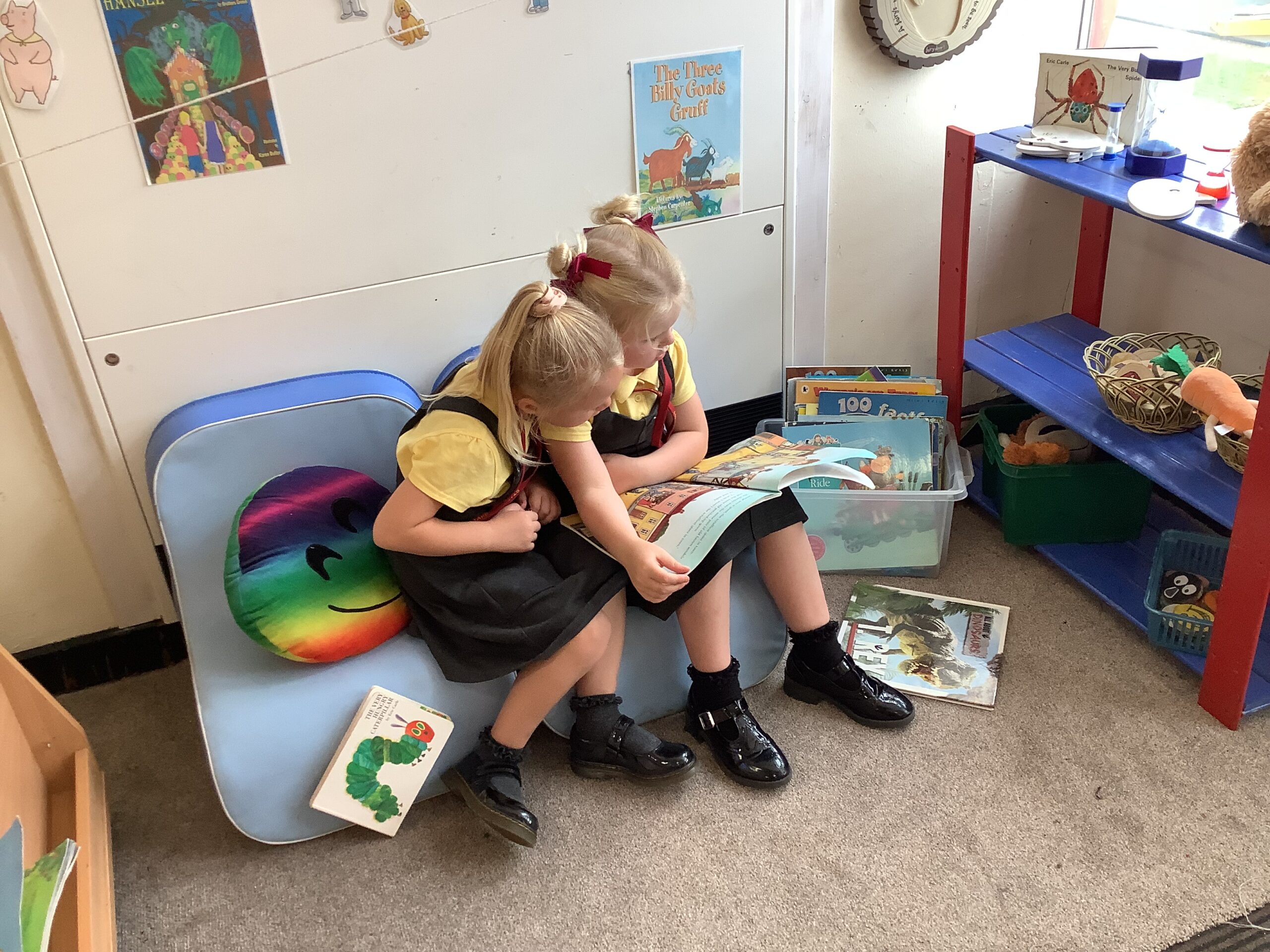Reading
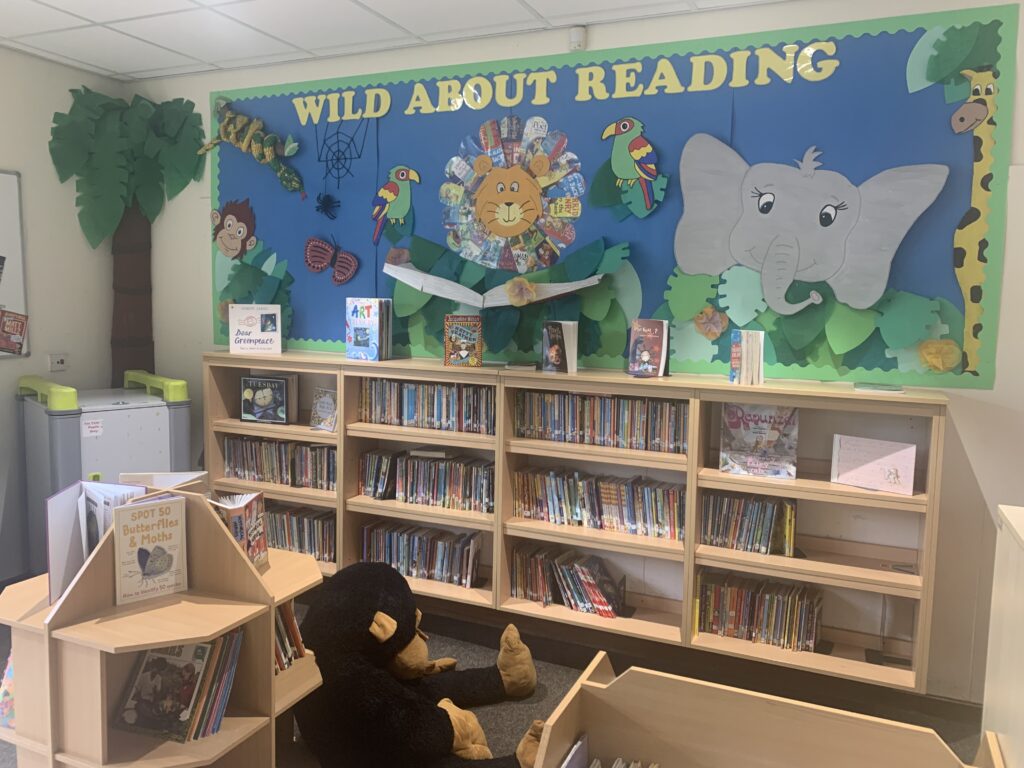
At Gorse Hall Primary and Nursery School we have a clear, consistent, whole school approach to Reading, Writing and Phonics. We aim for all children to learn from, and experience high quality texts, which results in them also developing a passion for Reading, Writing and Phonics. Competence in reading is key to independent learning and is given the highest priority at our school, enabling the children to become enthusiastic, independent and reflective readers. Success in reading has a direct effect upon progress in all other areas of the curriculum and is crucial to developing children’s self-confidence and motivation.
Implementation:
As part of this planning process, teachers need to plan the following in order that we provide the children with the skills and strategies necessary to develop into competent and fluent readers
- Recognise and value the parents/carers role as prime educators in the pre-school years and work together to develop the child’s reading skills.
- Encourage care and ownership of books.
- Create a reading culture in school by providing a rich language environment within the classroom and throughout the school.
- Teach our pupils to become confident, independent reflective readers who read from a range of texts for a variety of purposes.
- Develop a critical appreciation of the work of authors, poets and illustrators.
- Encourage the enjoyment of books and reading so that the children develop a life-long love of books – class novels, high quality reading areas, book recommendations etc.
- Provide children with high quality reading activities and follow up sessions to equip our children with the skills and strategies necessary to develop into competent and fluent readers
- Deliver a structured and progressive whole school approach to the teaching of reading following the whole school progression of reading skills.
- Build on the child’s prior knowledge and early literacy experience.
- “I can” statements for Reading to be used in order to inform assessment. Through this we can identify children who are on track and those children that need more support to achieve ARE and also those children who need to be provided with more challenge in order to achieve Greater Depth.
- Identify pupils who require additional support and intervene at an early stage.
- Select appropriate resources to motivate, challenge and extend pupils effectively.
- Monitor reading progress and levels of attainment closely through the use of reading ladders
- Promote an ethos of achievement by setting high expectations and challenging targets.
- Send home high quality texts both decodable and non-decodable that are closely matched to their attainment in phonics.
Impact:
Our English / Reading Curriculum is high quality, well thought out and is planned to demonstrate progression. If children are keeping up with the curriculum, they are deemed to be making good or better progress. In addition, we measure the impact of our curriculum through the following methods:
- A reflection on standards achieved against the planned outcomes.
- Listening to the children read and discussions about their reading.
- Pupil discussions about their learning in Reading.
- Children can answer a range of comprehension questions about their reading using question STEM cards and children have the skills and confidence to tackle all questions in the range of all Assessment Foci in reading.
- Children are showing progress and achieving; Expected or Greater depth in End of Key Stage SAT’s.
KS1 Types of questions to ask when reading with your child
KS2 Types of questions to ask when reading with your child
PRIMARY National Curriculum English
Whole School Progression of Reading
Reading Policy
Curriculum Map Reading
I Can Reading Statement
How we teach reading
Common exception words
